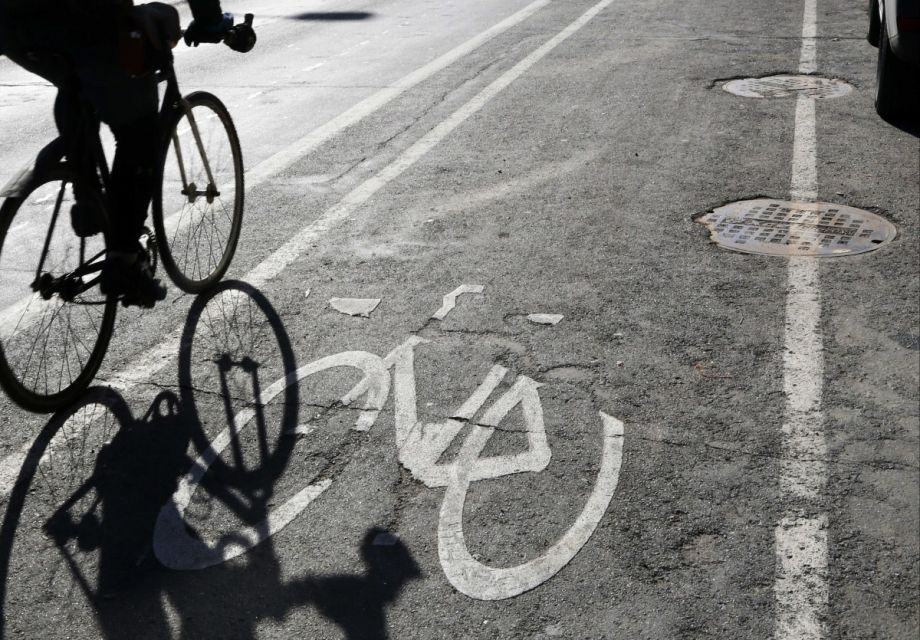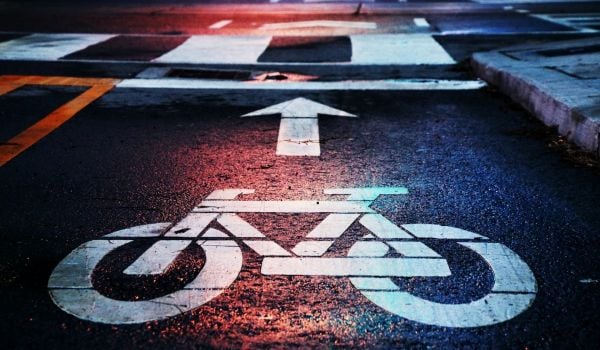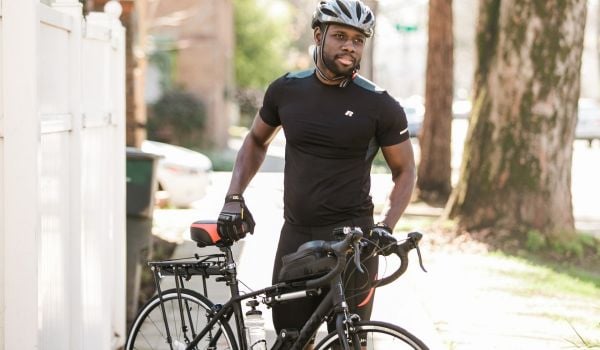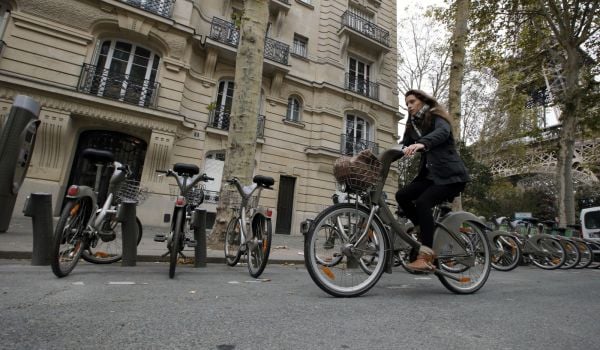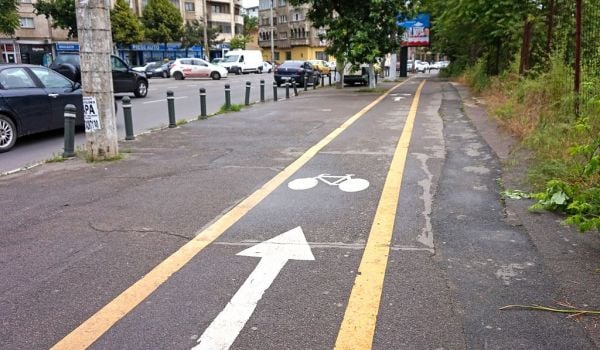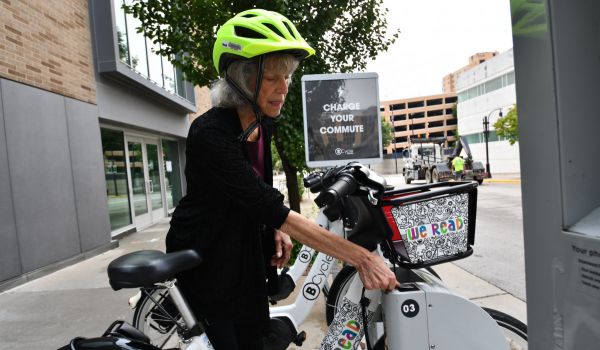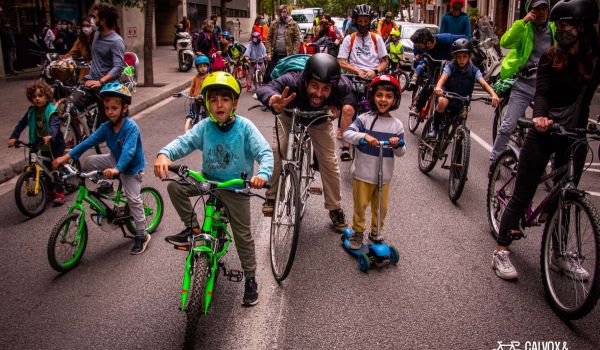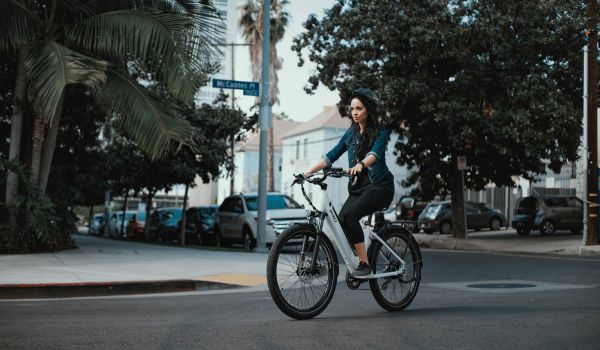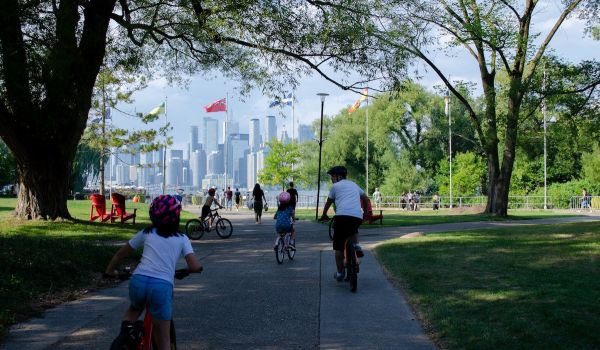The citywide bike plan that the Charlotte City Council approved last year represented a careful balance between what advocates expected was a realistic investment and what they wanted to accomplish in terms of impact on the street level.
But despite the work that went into it, getting it through the budget process unharmed was never a sure thing. So this month, when the city council approved an annual budget with the full $4 million that was called for in the bike plan, advocates breathed a sigh of relief.
“We’ve got some strong advocacy and a strong cycling community that did a good job of walking the tightrope,” says Charlotte City Councilman Larken Egleston, who was a major supporter of the bike plan. “Thanking everybody that was supporting and praising the money that was in the draft budget but also putting a little bit of heat on anybody who was trying to come after that money for their own projects. You don’t want to be too aggressive and too negative, but I think that fine line of praise and pressure is pretty effective. And I think most of the folks in the cycling community walked it pretty well.”
Now with the funding in place, advocates are hoping the plan will help the city provide better and safer mobility options for Charlotte’s population — which is reportedly growing by 60 people a day — while making the most of other investments in public transit and street infrastructure. The $4 million allocation is part of the city’s 2018 Transportation Bond, which goes before voters in November.
Adam Raskoskie, chair of the City/County Bicycle Advisory Committee, says the city had been making progress on planning for bicycle infrastructure more than a decade ago, but progress was halted when the 2008 recession hit. It’s only now getting back on track. A Transportation Action Plan approved last year calls for 50 miles of new bike lanes by 2020 and 200 miles by 2040.
“We’re experiencing a tremendous amount of growth, and I think the city realizes that everybody that comes here driving cars by themselves for every single trip is just not sustainable,” Raskoskie says.
The plan itself, called Charlotte BIKES, was informed by a 2016 transportation survey meant to gauge Charlotteans’ desire to drive less if better bike facilities were available, according to Amy Mitchell, a spokeswoman for the Charlotte Department of Transportation. According to that survey, 62 percent of residents said it was not easy to bike in the city, 63 percent said they would like to drive less often and 51 percent said they would like to ride a bike more often.
The Department of Transportation also held public workshops and pop-up events to hear from residents about transit preferences and worked with the Bicycle Advisory Committee, which was created in 1999, to come up with the recommendations in the plan, according to Mitchell.
The plan frames the prevalence of bicycling as an indicator of urban health, stating, “The bicycle can be a tool to address inequities in Charlotte by providing an affordable, convenient transportation option.” It promotes equity as the overriding value informing the proposed investments. In 2015, a study put Charlotte at the bottom of the list of 50 cities in terms of upward economic mobility for its residents. Raskoskie says that the bike plan was informed by all the various conversations about how to improve that ranking, from jobs to education and housing.
“We’ve been trying very hard to make sure that we are talking about the importance of bike transportation in Charlotte in the context of everything else that’s going on in the city,” he says.
“It’s an environmental justice issue and it’s an equity issue as well,” says Terry Landsell, the brand-new executive director of BikeWalk NC, a statewide advocacy group for cyclists and pedestrians. “You take away the ability for people to advance out of poverty when you demand or require that they have vehicle ownership.”
Landsell says that the state’s 61 transportation systems could all see increased ridership if cities invested more in bicycle infrastructure that connects to transit nodes. Charlotte and other cities also need to codify a “complete streets” paradigm, so that cyclists are considered in all roadway investments.
“Charlotte is gaining momentum and is becoming a leader in planning for funding for bike projects, but we’ve got a long way to go,” Landsell says.
Of the $4 million allocated for the plan, $3.3 million is dedicated to constructing new bike lanes, including protected bike lanes, painted lanes, and shared-use paths. Charlotte built its first protected bike lane in 2017, and according to Raskoskie, it has several more in the works. Those include a protected lane in the central business district that will connect two greenways, Raskoskie says. There’s an appetite for more protected infrastructure in the city, but Raskoskie says that says that much of the money will go to buffered and painted lanes. The money should be used primarily to fill gaps in the existing bike-lane network, he says.
“We fought really hard to get the $4 million,” Raskoskie says. “We weren’t at all certain that we were going to get that … I personally would love for us to do a really good job with this $4 million and use that as a justification for getting more money in the future.”
UPDATE: We’ve clarified language in this article around what types of bike lanes will be receiving funding out of the $4 million allocation.

Jared Brey is Next City's housing correspondent, based in Philadelphia. He is a former staff writer at Philadelphia magazine and PlanPhilly, and his work has appeared in Columbia Journalism Review, Landscape Architecture Magazine, U.S. News & World Report, Philadelphia Weekly, and other publications.
Follow Jared .(JavaScript must be enabled to view this email address)

